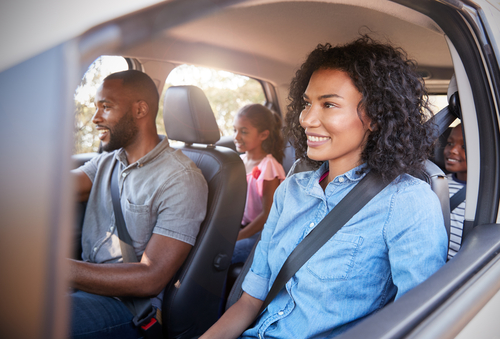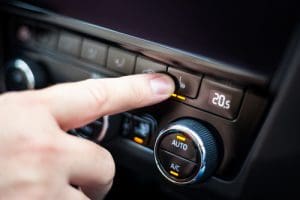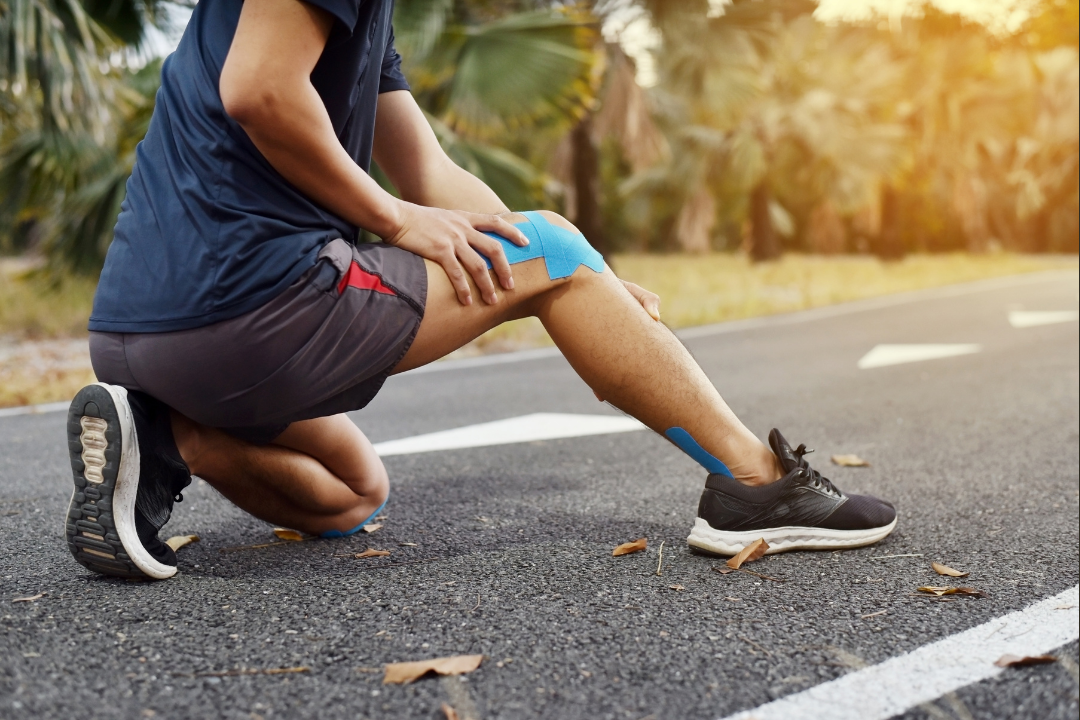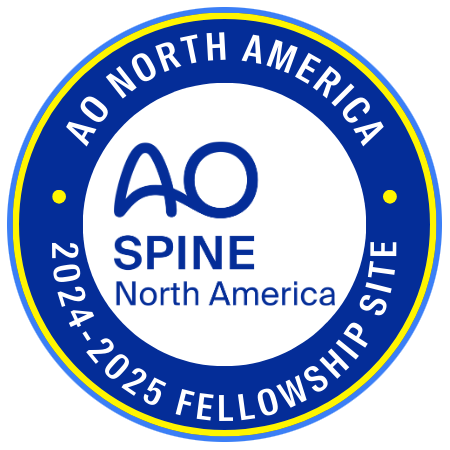 Whether you are traveling for Easter, enjoying a spring break trip with your family, or planning your summer vacation, this is a busy time of year with more road trips and more time spent in the car. The article below covers 7 tips to help manage your back pain while you travel so you can fully enjoy your vacation upon arrival!
Whether you are traveling for Easter, enjoying a spring break trip with your family, or planning your summer vacation, this is a busy time of year with more road trips and more time spent in the car. The article below covers 7 tips to help manage your back pain while you travel so you can fully enjoy your vacation upon arrival!
1. Get comfortable immediately.
Take the time to make sure you’re comfortable from the moment you set off on your trip. The smallest irritant in the beginning of your trip can turn into raging pain later.
Don’t have your wallet, cell phone, or anything else in your back pocket, as that may throw your spine out of alignment.
Reduce reaching for the steering wheel, which places more stress on the lumbar spine, neck, shoulder, and wrists. Instead, sit as close to the steering wheel as possible without compromising your safety.
Sit up straight with your knees slightly higher than your hips, and keep your chin pulled in so that your head sits straight on top of your spine.
Make sure that your back is aligned against the back of your seat. For most people, this means adding extra support to the car seat. There are many specialized cushions and pillows that can help with sciatica pain or lower back pain. Commonly available cushions can be gel-filled made of memory foam materials. You can also use a small pillow or roll up a scarf and place it between your lower back and the seat to support the contour of the inward curve in your lower back.
There is no single best option, and it may take some effort and trial and error on your part to find what works best for you.
2. Make your ride as smooth as possible
For many, the worst part of the ride is the bumps in the road that jar your spine. If this is the case for you, consider these options:
- Riding in passenger car, rather than an SUV or pickup, may provide a much smoother ride
- Replacing worn shocks on the car can limit the bounce in the car
- Similarly, replacing worn tires can a be helpful. Some people find that a slight reduction in the tire pressure can also smooth out the ride
- Consider sitting on a pillow made for a chair seat, such as a coccyx pillow, or a car seat cushion, to provide a bit of extra cushioning between you and the road
 3. Get out and move around
3. Get out and move around
Your spine is designed to move. Sitting in one position in a car will stiffen up your back muscles and can lead to achiness and possibly muscle spasm. If possible, plan ahead for to schedule stops—ideally every 30 minutes—and get out of the car so you can move around and stretch. Movement stimulates blood circulation, which brings nutrients and oxygen to your lower back.
In between exercise stops, try to move a little in your seat. Even 10 seconds of movement and stretching is better than sitting still. At a minimum adjust your seat and change your position slightly every 15 to 20 minutes. Pump your ankles to keep the blood flowing and provide a slight stretch in your hamstring muscles. Any movement that is safe to do in the car will help you out.
4. Bring along a cold pack
If you have back pain, it may be a good idea to bring an ice pack or cold pack along in the car with you.
Most back pain is accompanied by inflammation. Applying a cold pack can reduce the inflammation and numb sore tissues. Please remember to always use a towel or another protective barrier to avoid ice burn.
Here are some options:
- Bring a cooler in the car with you and keep reusable ice packs in it, or make your own ice pack and bring it along
- Buy some instant ice packs at a pharmacy or general merchandise store. Keep them in the glove compartment in case you ever need them
 5. Warm up your muscles
5. Warm up your muscles
Many people find that warming up the lower back is a good way to alleviate pain on a long road trip. Here you have a lot of options:
- Keep a heating pad in your car, and use a power converter to plug it into your cigarette lighter or dashboard power source and turn on your heating pad when you need it
- If you prefer moist heat, you can buy a reusable heating pack and heat it in your microwave before getting in the car. You can place this between your lower back and the seatback in place of using a lumbar pillow
- Another option is to try using a long lasting (e.g. 6 hours) heat wrap that has uses adhesives and is applied directly onto your skin. This type of heat wrap provides a low level of continuous heat. One brand name is ThermaCare, and many retailers also have non-branded versions of this type of product
- Some cars have heated seats, which deliver a continuous low level of heat and can be used to keep your lower back muscles warm
6. Support your back with your feet
Supporting your spine starts with bottom-up leverage from your feet. Your feet need to be placed on a firm surface and at the right height to avoid transferring stress to your lower back. It is ideal to have your knees at a right angle. This means, if your seat is too high it is best to put your feet on a footrest. If you are the driver and have the ability to use cruise control for a longer drive, you may want to do this to allow you to have both feet on the floor for periods of time.
7. Employ diversions
While it seems obvious, it bears repeating that taking your mind off your pain can be surprisingly helpful.
Even if you’re the driver, there are still a few options to help occupy your mind. Try a new music channel, download a podcast or listen to an audio book. Your local library will have audio books you can check out.
If you’re the passenger, then you have quite a few choices: meditate, read, try a new crossword puzzle or sudoku, try a new app or electronic game, watch a movie or a TV series you’ve always wanted to see…it will take some planning, but having something planned to occupy your mind could become a real asset on your trip.
I hope at least some of the above tips are helpful to you, and at a minimum I hope they spur you to think of other ways you can get through a long car trip with less pain.
Original article posted on spine-health.com.








